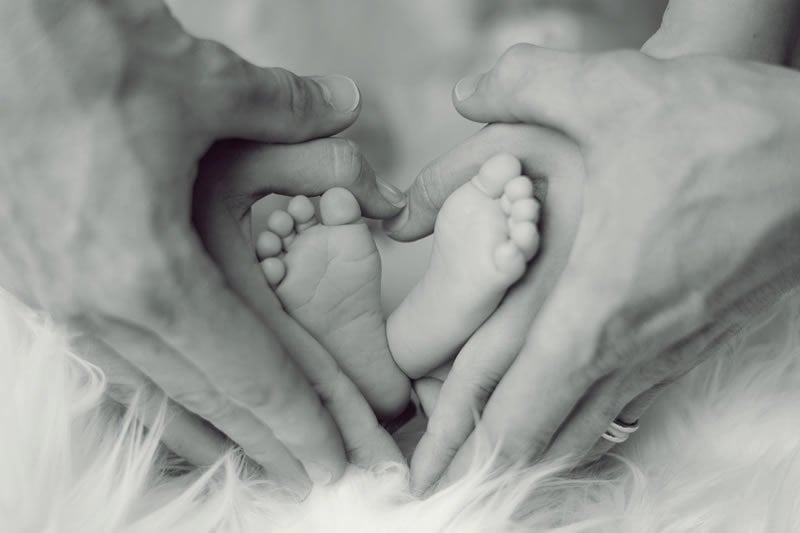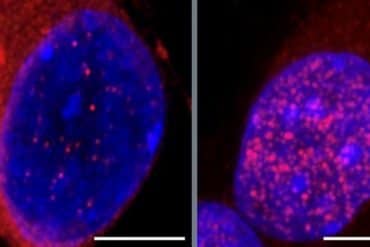Summary: Children who were admitted to NICUs as babies are twice as likely to be diagnosed with mental health problems, including ADHD, phobias, and separation anxiety.
Source: McMaster University
Children who spend time in a neonatal intensive care unit (NICU) at birth have a higher risk of mental health issues later, regardless of their birth weight, say McMaster University researchers.
The study examined the mental health of NICU graduates in childhood (four to 11 years) and adolescence (12 to 17 years), using data from parent and youth psychiatric interviews.
The research builds on previous studies that suggest extremely low birth weight babies who are admitted to the NICU are more likely to develop mental health issues during those years.
The results were published in Archives of Disease in Childhood.
“Advancements in the medical care of patients admitted to the NICU have led to improved outcomes for infants and families, and the need for NICUs has increased in Canada and the U.S.,” said study senior author Ryan Van Lieshout, associate professor of psychiatry and behavioural neurosciences at McMaster.
“However, little has been known about the mental health of the broader population of NICU graduates, particularly as they enter late childhood and adolescence.”
The study used a provincially representative cohort from the 2014 Ontario Child Health Study, led at McMaster. Parents provided data on psychiatric disorders for 3,141 children aged four to 11 and in 2,379 adolescents aged 12 to 17. Additionally, 2,235 adolescents aged 12 to 17 completed the interview themselves
Children aged four to 11 who had a NICU admission were nearly twice as likely to have any mental disorder or have more than one mental illness. The risk of separation anxiety disorder, specific phobia, attention deficit hyperactivity disorder, or oppositional defiant disorder also increased.
At the age of 12 to 17 years, NICU graduates remained at nearly twice the risk for developing any psychiatric problem, multiple psychiatric problems and oppositional defiant disorder as reported by adolescents and their parents.

“Existing follow-up guidelines of preterm infants suggest monitoring for mental health issues, and this study provides preliminary evidence that in the future it may be prudent to expand this to all infants who stay in a NICU regardless of birth weight status,” said Van Lieshout.
Van Lieshout added that additional research and more data are needed to better understand potential causal factors, and further identify at-risk individuals.
Funding: The study was funded by the Canadian Institutes of Health Research; Ontario Ministry of Health and Long-Term Care; Ontario Ministry of Children and Youth Services, and Ontario Ministry of Education.
Source:
McMaster University
Media Contacts:
Tina Depko – McMaster University
Image Source:
The image is in the public domain.
Original Research: Closed access
“Childhood and adolescent mental health of NICU graduates: an observational study”. Ryan Van Lieshout et al.
Archives of Disease in Childhood doi:10.1136/archdischild-2019-318284.
Abstract
Childhood and adolescent mental health of NICU graduates: an observational study
Objective
To investigate the mental health of children and adolescents admitted to neonatal intensive/special care units (NICUs) in infancy.
Methods
This cross-sectional study used a provincially representative cohort from the 2014 Ontario Child Health Study. Parents provided data on psychiatric disorders using the MINI International Neuropsychiatric Interview for Children and Adolescents in 3141 children aged 4–11 years (NICU n=389; control n=2752) and in 2379 children aged 12–17 years (NICU n=298; control n=2081). Additionally, 2235 adolescents aged 12–17 years completed the interview themselves (NICU n=285; control n=1950). Odds of psychiatric disorder were compared in those admitted and controls.
Results
Based on parent reports, NICU graduates aged 4–11 years had increased adjusted ORs (95% CI) of 1.78 (1.39 to 2.28) for any psychiatric disorder, with a marginal prevalence of 32.4% in NICU participants and 27.6% in controls. At this age, NICU graduates also had increased ORs of 1.74 (1.25 to 2.40) for psychiatric comorbidity, 1.48 (1.04 to 2.11) for oppositional defiant disorder, 1.61 (1.19 to 2.19) for attention-deficit hyperactivity disorder, 4.11 (2.33 to 7.25) for separation anxiety disorder and 2.13 (1.37 to 3.31) for specific phobia. At 12–17 years, 40.5% and 30.5% of NICU graduates and 30.6% and 17.9% of controls had any psychiatric disorder as reported by parents and self-report, respectively. Parents and adolescents, respectively, reported increased adjusted ORs (95% CI) of 1.63 (1.18 to 2.26) and 1.55 (1.13 to 2.11) for any disorder, 1.64 (1.06 to 2.54) and 1.74 (1.11 to 2.73) for psychiatric comorbidity, and 1.89 (1.22 to 2.93) and 3.17 (2.03 to 4.95) for oppositional defiant disorder.
Conclusions
NICU graduates are at increased risk for psychiatric disorders during childhood and adolescence.






